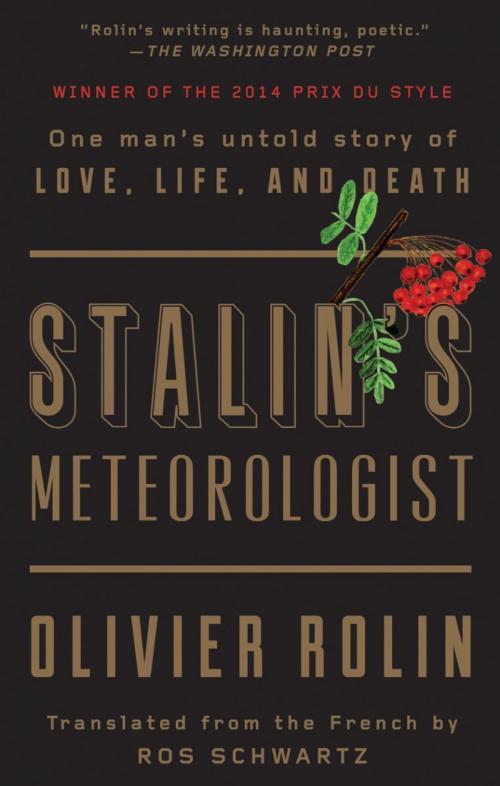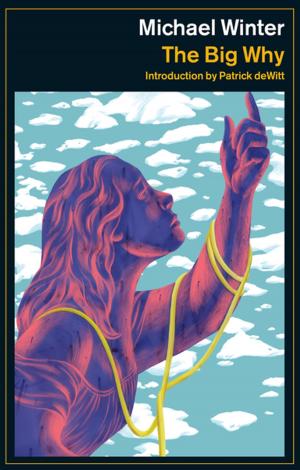Stalin's Meteorologist
One Man’s Untold Story of Love, Life, and Death
Nonfiction, History, Asian, Russia, Biography & Memoir, Political, Social & Cultural Studies, Political Science| Author: | Olivier Rolin | ISBN: | 9781619027824 |
| Publisher: | Counterpoint | Publication: | December 1, 2017 |
| Imprint: | Counterpoint | Language: | English |
| Author: | Olivier Rolin |
| ISBN: | 9781619027824 |
| Publisher: | Counterpoint |
| Publication: | December 1, 2017 |
| Imprint: | Counterpoint |
| Language: | English |
**Winner of the 2014 Prix du Style
"Masterful . . . An eloquent addition to a violent episode in the history of science in the twentieth century." —Nature**
In 1934, the highly respected head of the Soviet Union’s meteorology department, Alexei Feodosievich Wangenheim, was suddenly arrested without cause and sentenced to a gulag. Less than a year after being hailed by Stalin as a national hero, he ended up with thousands of other "political prisoners" in a camp on Solovetsky Island, under vast northern skies and surrounded by water that was, for more than six months of the year, a sheet of motionless ice. He was violently executed in 1937—a fact kept from his family for nearly twenty years.
Olivier Rolin masterfully weaves together Alexei's story and his eventual fate, drawing on an archive of letters and delicate drawings of the natural world that Wangenheim sent to his family from prison. Tragically, Wangenheim never stopped believing in the Revolution, maintaining that he'd been incarcerated by accident, that any day Stalin would find out and free him. His stubbornness suffuses the narrative with tension, and offers insight as to how he survived an impossible situation for so long.
Stalin’s Meteorologist is a fascinating work that casts light on the devastating consequences of politically inspired paranoia and the mindlessness and trauma of totalitarianism—relevant revelations for our time.
**Winner of the 2014 Prix du Style
"Masterful . . . An eloquent addition to a violent episode in the history of science in the twentieth century." —Nature**
In 1934, the highly respected head of the Soviet Union’s meteorology department, Alexei Feodosievich Wangenheim, was suddenly arrested without cause and sentenced to a gulag. Less than a year after being hailed by Stalin as a national hero, he ended up with thousands of other "political prisoners" in a camp on Solovetsky Island, under vast northern skies and surrounded by water that was, for more than six months of the year, a sheet of motionless ice. He was violently executed in 1937—a fact kept from his family for nearly twenty years.
Olivier Rolin masterfully weaves together Alexei's story and his eventual fate, drawing on an archive of letters and delicate drawings of the natural world that Wangenheim sent to his family from prison. Tragically, Wangenheim never stopped believing in the Revolution, maintaining that he'd been incarcerated by accident, that any day Stalin would find out and free him. His stubbornness suffuses the narrative with tension, and offers insight as to how he survived an impossible situation for so long.
Stalin’s Meteorologist is a fascinating work that casts light on the devastating consequences of politically inspired paranoia and the mindlessness and trauma of totalitarianism—relevant revelations for our time.















